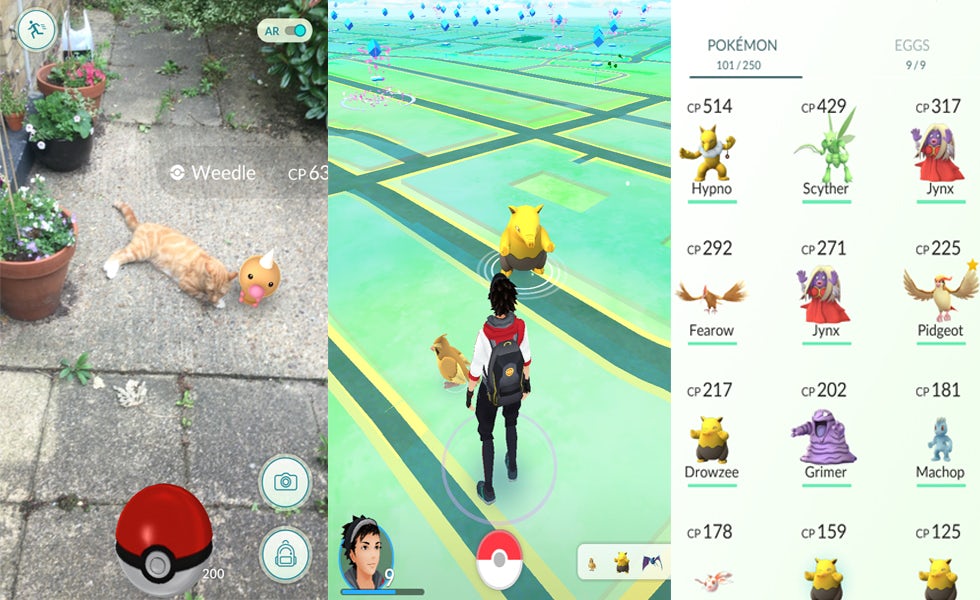Mark Ritson: The real lesson of Pokémon Go is that today’s marketers will jump on any bandwagon
Like Cabbage Patch Kids, the Rubik’s Cube and the Tamagotchi, Pokémon Go is a fad destined to burn out quickly, but that doesn’t stop clueless marketers abandoning their brand positioning in favour of luring any teenage boy with a smartphone.

I tried to resist as long as humanly possible. But the gravitational pull of Pokémon Go has pulled me into its digital tractor beam and forced me to join the throng of marketers enthralled by every facet of its augmented reality.
Like millions of other marketers, I now openly acknowledge that there have been two eras in the history of marketing – BPG and APG. All the old rules about having a strategy, doing research and thinking about stuff are clearly redundant because they were invented before Niantic and Nintendo managed to geo-locate small fictional creatures onto my smartphone.
READ MORE: Why Pokémon Go is a game changer for augmented reality and marketers
For starters, the language of marketing must change. Words such as storytelling, social, inbound, disruption, content and millennials clearly represent the vocabulary for marketing success. But it’s becoming clear that without the addition of Pokémon Go this lexicon is growing dangerously ‘traditional’ – and there is nothing worse than that.
Whereas in the past it might have been advisable for a marketer to tweet about ‘How to disrupt social storytelling and target millennials with your inbound digital content’, in the new APG era it’s imperative to upgrade this to ‘How to disrupt social storytelling with Pokémon Go when targeting millennials with your inbound content marketing’. It is a subtle shift, but essential if you want to prosper in the brave new APG era ahead.
Just in case you think I am taking the piss a little too much let me share some of my favourite implications of Pokémon Go from marketing experts/ninjas over the past week. Pokémon Go has been variously associated with the “beginning of a shift in the way we advertise”, “taking customer relationships to a level like we’ve never seen before”, and “solving one of marketing’s biggest conundrums”.

If you think the experts are embarrassing, how about the brands that have apparently tossed their marketing strategies out of the window in a fevered tactical chase to associate themselves with Pokémon Go and its crazed following. My favourite example last week was Mercedes. The German automotive manufacturer has invested in so-called ‘lure modules’ near ‘PokéStops’ to attract monsters and therefore people playing the game to their showrooms. Mercedes-Benz dealers across Germany have apparently been issued with a “detailed manual” to explain how Pokémon Go can be used to drive traffic to their showrooms.
I’m not sure whom Mercedes is meant to be targeting in Germany but I’m pretty sure it’s not sleep deprived pre-pubescent boys staring inanely into their smartphones. And even if that is their target customer I would be looking for a better time to try and sell them a car than when they are wandering, zombie-like, round the back of your dealership looking for Pikachu among the recycling bins. I’m also betting that if I challenged Mercedes’ current marketing department to tell me what their positioning is, they are more likely to tell me it’s “next to the big green Bulbasaur over there” than give me a proper, strategic answer.
Ever since the world was young we have had sudden fads that create a global sensation. The hula hoop, Rubik’s Cube, Cabbage Patch Kids, Tamagotchi – pick your fad based on your birth year. What makes the current Pokémon Go phenomenon so different is the way it has exploded out of the world of consumer fascination and into the world of marketing and business. We all went a bit mental about Cabbage Patch Kids back in the eighties but some bearded muppet from the Marketing Society did not turn up on the six o’clock news and start telling Angela Rippon how they were changing the face of modern advertising.
The real lesson marketers can learn from Pokémon Go has nothing to do with the game, and everything to do with the wobbly, ephemeral state of marketing these days. We blindly accept that there are 400 million players of Pokémon Go without checking for two seconds and concluding that this number is clearly nonsensical. We glibly assume that Nintendo will make “$12bn” from the new game before anyone realises that, as they did not actually create the game, they will make only a fraction of that sum from it. We watch brands confuse attracting any customer with a pulse and a smartphone with proper targeting in which strategy drives tactics.
Perhaps worst of all, we assume that today’s Pokémon Go player will be playing tomorrow. If we have learned anything from the fads of the past it is that Lucy grows tired of her hoop and Paul pulls the stickers off his Rubik’s Cube and starts using it as a football. Fads burn bright and then fade fast – how about that as the big lesson for marketers to learn from Pokémon Go? Or is my content too disruptive for you?
We’ve teamed up with award-winning columnist and Professor Mark Ritson to bring you a new online learning experience. The MW Mini MBA in Marketing is a CPD accredited, MBA standard course. Cover the same core modules as leading MBA programmes, in just 12 lessons, it will give you the tools you need to do your job better. For more information click here.








